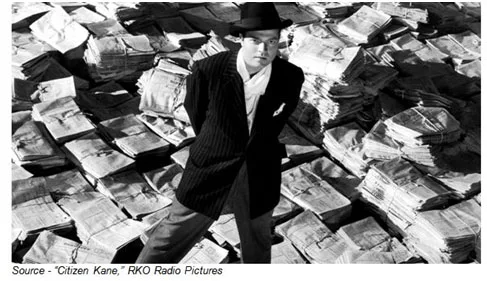The News – Don’t Blame Facebook for News Bias, It Could Be You

You have to hand it to Gizmodo for getting the scoop – and passing it all around the globe – that Facebook is prejudice. Especially when it comes to news that’s most important to you.
Think about their coverage of conservative/liberal, blonds/brunettes, height challenged (either way) and attractive/less attractive.
It’s obvious. When was the last time you saw a news item about you trending?
Not sure quite how to break it to Gizmodo but news coverage has always been sorta’, kinda’ prejudice since the beginning of time. After all, its people getting the information and telling the story to others, as well as how it’s read/heard and processed by the recipient.
No matter what journalism school reporters/editors graduated from (mine was one of the best but then I’m prejudice) they were taught to come to grips with their preconceived ideas, prejudices; put them aside as much as possible and report/interpret the facts for folks.
With their training, they do their darndest; but it’s an impossible task.
Just as it’s impossible for you to read the “objective” piece without injecting your own prejudices.
And these are professional, ethical journalists.
Today, we have citizen journalists that journalist Courtney Radsch describes as “An alternative and activist form of newsgathering and reporting that functions outside mainstream media institutions.”
Now that they are constantly connected and have their smartphone cameras, it’s true; “No matter where you go or what you do, someone will see you.”
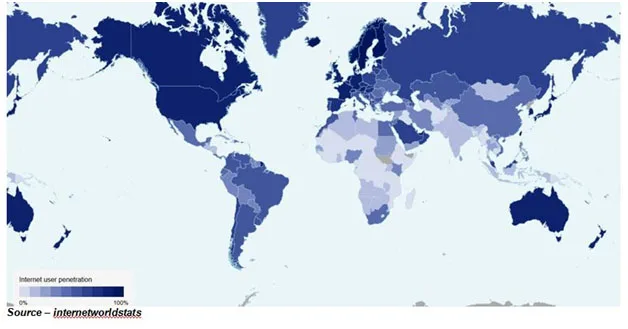
It’s pretty easy to see why there are roughly:
- 750K computers in use WW
- 200K tablets in use
- 5B mobile phones
According to Pew Research, in the U.S.:
- 78% of adults under 30 own a laptop or desktop computer
- 45% of adults have a tablet
- 86% of those ages 18-29 have a smartphone
And that doesn’t include the billions of mindless sensors that are spilling their guts, telling their stories about where you’re at; what you’re doing; where you’re going; what you’re thinking about; what you’re buying; who you’re friending/unfriending; what you’re watching/listening to; oh crap, everything!
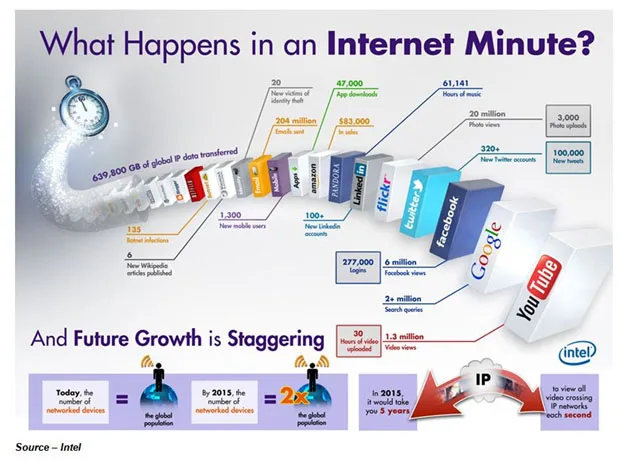
It’s all news to someone; and for you to keep up with it all is an impossible task.
So it’s rather nice that a Harvard dropout and a few thousand other creative folks around the globe dedicated themselves to getting you the tip of the iceberg of news you really wanted to stay abreast of.
Imagine the awesome power of being able to control and mold the thinking of a billion or so folks who signed up for Facebook around the globe.
It’s sorta’ important to remember that they don’t really create the news. That’s done by trained and citizen journalists who have it printed/posted somewhere else.
Facebook just grabs the highlights and spoon feeds you just enough information so you feel you know the subject and what’s going on.
Want more info? Go to the source.
It’s true, Facebook has a few “editors” who curate the news based on what’s trending but do you think they really read much of the stuff that flies across their screens to see if they’ve covered blond, less attractive, conservative folks enough?
Gizmodo – a very good site in their own right – thought the unnamed former employees gave them all the facts they needed to beat up the upheld thumb.
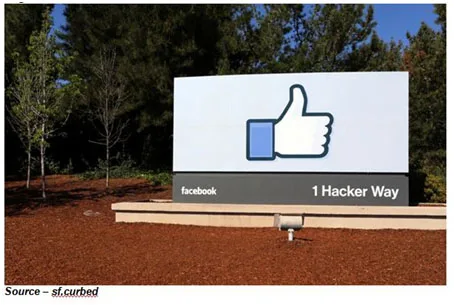
That was all the senior citizens in Congress needed to demand answers (after talking with their interns and finding out what Facebook was).
Taking time from dialing for campaign contributions, one said, “Any attempt by a neutral and inclusive social media platform to censor or manipulate political discussion is an abuse of trust and inconsistent with the values of an open internet.”
Government officials in other countries have (and will continue to have) similar concerns and challenges about what news their citizens get to view.
But the noise was all about what’s trending, which is pretty minor.
Seriously, if you want trending without thinking, tune in TMZ on your smartphone!
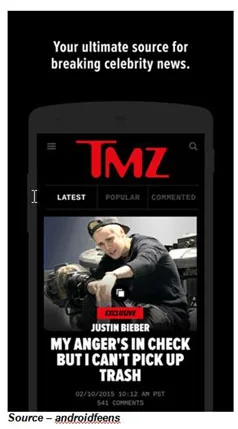
To quickly and efficiently search all the stuff that’s put out there and up there, Facebook’s computers use algorithms, data, math and computational power that make decisions on what’s hot, what’s not.
But as Dave Pogue (former New York Times Tech editor) once noted, you put together a bunch of different components from different suppliers, add a bunch of different programs and software and if they work together at all, they do things you probably didn’t predict.
Remember HAL 9000?
Facebook isn’t that sinister.
Lest we forget, what the entire Internet, web and social media do is provide the right environment for ad dollars to keep flowing.
All those lines of code folks write are designed to keep you on Facebook longer so they can figure out more about you and can rent the information to advertisers.
In the raging days of print, radio and TV news, the decisions were made by humans and it was a simple rule, “If it bleeds, it leads.”
It still works for the National Enquirer, NY Post and probably hundreds/thousands of print publications around the globe.
The whole computerized thing isn’t that logical – yet – so it makes its decisions based on the numbers – how many folks like/hate the item, how much of it they read, what they do after they read it (share, write vulgar notes or leave, never to return).
That’s not really bias, it’s free enterprise and I’m not sure if that’s conservative or liberal.
As for what’s hot, what’s not?
That’s in the eyes of the beholder.
As Charles Foster Kane said, “I don’t think there’s one word that can describe a man’s life.
When asked about trending news, he would have simply added, “The news goes on for 24 hours a day.”
###
